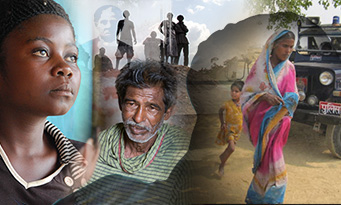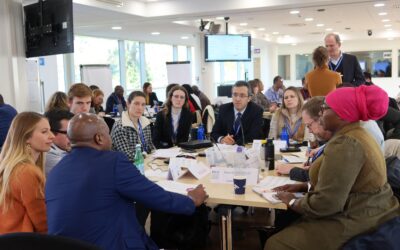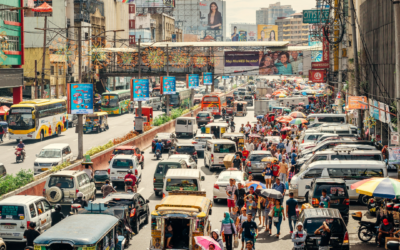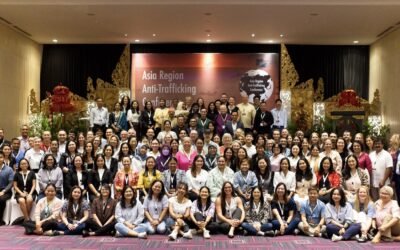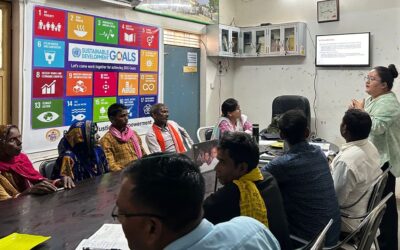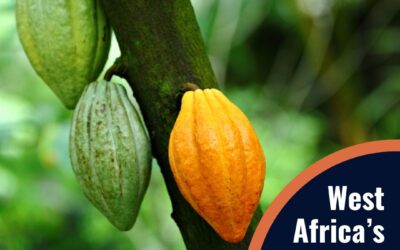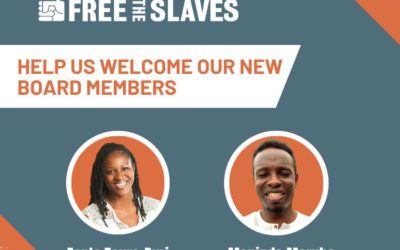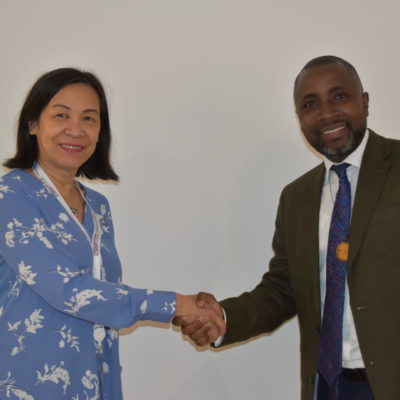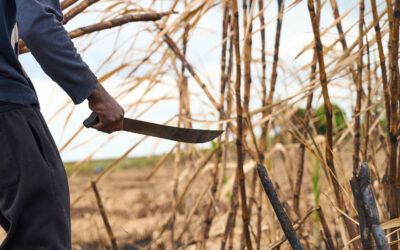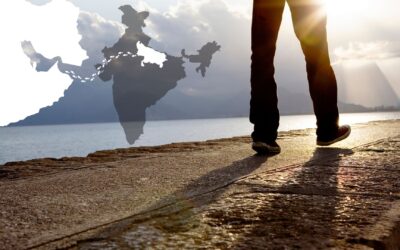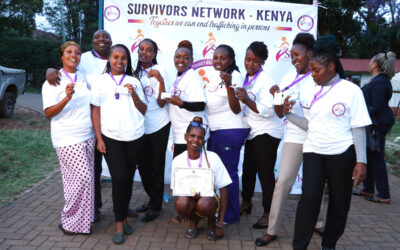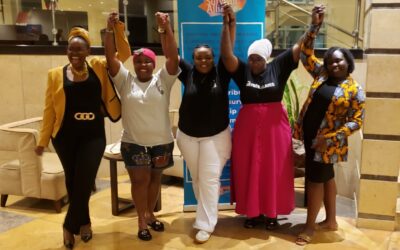Blog
Breaking Chains: Kenya Becomes a Pathfinder Country in the Global Fight Against Exploitation
On December 6, 2024, Kenya unveiled a groundbreaking roadmap to combat child labor, forced labor, human trafficking, and modern slavery. Presented at the 19th Global Coordinating Group meeting in Turin, Italy, this strategy establishes Kenya as a Pathfinder Country under the Alliance 8.7 framework, highlighting its commitment to human rights and survivor-centered solutions.
Modern Slavery in the Philippines: A Closer Look
Despite significant progress in anti-trafficking efforts, modern slavery continues to impact an estimated 859,000 people in the Philippines. Vulnerable groups, including migrants, children, and women, face exploitation in forced labor, sex trafficking, online abuse, and hazardous industries. While the Philippines has retained Tier 1 status in the 2024 Trafficking in Persons Report, systemic challenges like corruption and insufficient victim screening hinder further advancements. This blog explores the forms of modern slavery affecting the country and outlines actionable steps to strengthen protections and support survivors.
Empowering Students to Combat Modern Slavery with Xavier University
Free the Slaves partnered with Xavier University – Ateneo de Cagayan’s National Service Training Program to educate over 110 students on modern slavery. Through workshops, students explored actionable solutions, such as leveraging social media and participating in local discussions, to fight human trafficking. This initiative highlights the pivotal role of youth in creating a world free from exploitation.
Get Involved
Empowering Students to Combat Modern Slavery with Xavier University
Free the Slaves partnered with Xavier University – Ateneo de Cagayan’s National Service Training Program to educate over 110 students on modern slavery. Through workshops, students explored actionable solutions, such as leveraging social media and participating in local discussions, to fight human trafficking. This initiative highlights the pivotal role of youth in creating a world free from exploitation.
Challenges on the Road to SDG Target 8.7
In 2023, a Filipino man seeking legal work was deceived into forced labor by a crime syndicate, highlighting a growing crisis: modern slavery. Despite global commitments like SDG Target 8.7, 50 million people remain trapped in exploitation, fueled by factors such as digital technology misuse, climate change vulnerabilities, and illicit financial systems. Tackling these interconnected challenges requires bold action, collaboration, and innovative solutions. Together, we can disrupt the systems enabling modern slavery and create a future where freedom is a reality for all.
A Call to Action: How Stakeholders Can Drive Alliance 8.7’s Mission Forward
Imagine a world without forced labor or child exploitation. For some, it’s a moral imperative; for others, it feels like a distant dream. Alliance 8.7 refuses to see it as unattainable. This global partnership accelerates progress toward ending forced labor and child exploitation through collaboration between governments, businesses, NGOs, and survivors. By championing accountability, transparency, and survivor-led change, these stakeholders unite to turn intention into action. Together, they illuminate the path toward a future where justice and freedom are universal rights.
Our Work
Free the Slaves’ Active Engagement in Key Regional Events In Asia
In July and August 2024, Free the Slaves participated in regional anti-slavery discussions in Asia, participating in key events focused on combating human trafficking and child exploitation. These events focused around collaboration and knowledge-sharing, addressing modern slavery in some of the most vulnerable regions of the world.
Training Transforms Survivors into Leaders in the Movement Against Modern Slavery
Survivors are now stepping into leadership positions, forming networks, and establishing organizations to lead the movement against trafficking and modern slavery. Both international and national organizations are playing a vital role in supporting these survivor networks through capacity-building and awareness-generation activities.
Harsh Realities of Forced Labor and Child Labor in West Africa’s Cocoa Industry
The newly released reports on Nigeria and Ghana offer an in-depth examination of how forced labor and child labor continue to underpin cocoa production in these countries. Despite being among the top cocoa producers globally, Nigeria and Ghana have long struggled with the dark side of this industry.
News
Free the Slaves Welcomes New Board Members
Free the Slaves is grateful to welcome Fanta Toure-Puri and Moninda Marube to our board of directors.
Free the Slaves Partners with Three New Organizations in Vietnam
Free the Slaves is excited to announce our new partnerships in Vietnam. These partnerships will allow us to understand more about the country and its need to have more players in the human trafficking space. These partnership endeavors are essential for developing...
FTS Executive Director Expresses Support for Panagtapok 2022
There is power in the collaboration and action of dedicated leaders to address societal issues. This was clearly achieved when more than 200 leaders from the Philippines gathered together in the Panagtapok 2022 (which translates to 'a gathering' in English). The event...
Americas
The Fight Against Human Trafficking: The Pursuit of Justice in the Dominican Republic
The Fight Against Human Trafficking and the Pursuit of Justice in the Dominican Republic. In the lush landscapes of the Dominican Republic (DR), a country celebrated for its beautiful beaches and vibrant culture, lies an insidious issue that casts a dark shadow: human...
Hope Amid Crisis in Haiti
You have probably seen in the news that Haiti is facing a crisis with multiple layers: political instability, a natural disaster, economic uncertainty, food shortages, and kidnappings for ransom. The president was assassinated, a 7.2 earthquake killed more than 2,000...
Joint Statement and Call to Action on the Crisis in Haiti
In response to the crisis in Haiti, which has deepened in the wake of the assassination of President Jovenel Moïse, we, the undersigned individuals and organizations, express our condolences and sympathy to all of the Haitian families that have lost a loved one to the...
Asia
Modern Slavery in the Philippines: A Closer Look
Despite significant progress in anti-trafficking efforts, modern slavery continues to impact an estimated 859,000 people in the Philippines. Vulnerable groups, including migrants, children, and women, face exploitation in forced labor, sex trafficking, online abuse, and hazardous industries. While the Philippines has retained Tier 1 status in the 2024 Trafficking in Persons Report, systemic challenges like corruption and insufficient victim screening hinder further advancements. This blog explores the forms of modern slavery affecting the country and outlines actionable steps to strengthen protections and support survivors.
Empowering Students to Combat Modern Slavery with Xavier University
Free the Slaves partnered with Xavier University – Ateneo de Cagayan’s National Service Training Program to educate over 110 students on modern slavery. Through workshops, students explored actionable solutions, such as leveraging social media and participating in local discussions, to fight human trafficking. This initiative highlights the pivotal role of youth in creating a world free from exploitation.
Community Safe Migration & Migrant Worker Protection Webinar
In September 2024, Free the Slaves and Verité hosted a webinar to share findings and lessons from the 19-month Fostering Fee Accountability and Cost Tracking (FFACT) Project, which tackled the complex issue of unsafe migration in South Asia. This event brought together 38 participants from India, Nepal, and Bangladesh to discuss solutions to safeguard migrant workers. The webinar also marked the first steps towards establishing a regional network for international migrants, set to launch in early 2025.
Africa
Breaking Chains: Kenya Becomes a Pathfinder Country in the Global Fight Against Exploitation
On December 6, 2024, Kenya unveiled a groundbreaking roadmap to combat child labor, forced labor, human trafficking, and modern slavery. Presented at the 19th Global Coordinating Group meeting in Turin, Italy, this strategy establishes Kenya as a Pathfinder Country under the Alliance 8.7 framework, highlighting its commitment to human rights and survivor-centered solutions.
Celebrating the Launch of the Survivors Network Kenya: A Milestone in Survivor Leadership
The launch of the Survivors Network Kenya (SNK) marks a significant milestone in survivor-led advocacy against human trafficking. Supported by Free the Slaves, SNK is the first survivor network officially recognized by the Kenyan government, empowering survivors to lead in policy engagement and systemic change across Kenya.
Harnessing Collective Power: Reflections from the Survivor Alliance World Congress
At the Survivor Alliance World Congress in Nairobi, survivor leaders and allies came together to amplify the power of collective action against human trafficking. Read how Free the Slaves is deepening its commitment to survivor-led change and building stronger, global partnerships.

